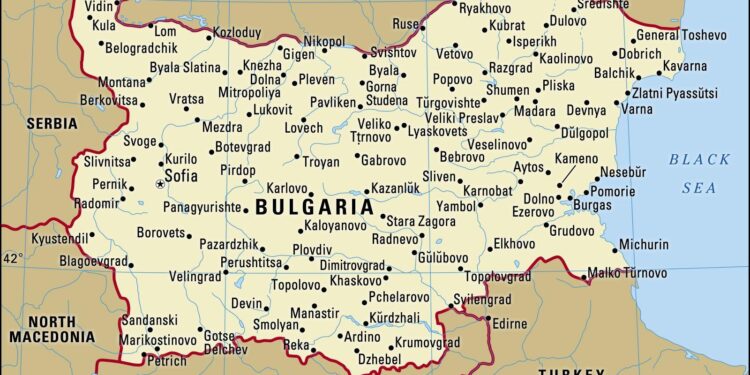Bulgaria is on the cusp of a historic monetary transition as it prepares to bid farewell to the lev and embrace the euro. This significant shift, marking the culmination of years of economic reforms and stringent fiscal policies, signals the country’s deeper integration into the European Union’s financial framework. As Bulgaria sets its sights on eurozone membership, the move promises to reshape its economic landscape, affecting everything from daily transactions to international trade. In this article, we explore the implications of Bulgaria’s planned adoption of the euro, the challenges ahead, and what this farewell to the lev means for citizens and collectors alike.
Bulgarias Transition from the Lev to the Euro A Historical and Economic Overview
Since its introduction in 1881, the Bulgarian lev has been a symbol of national identity and economic resilience. Over the years, it weathered wars, regime changes, and periods of economic instability. Yet, the lev maintained its place as the cornerstone of Bulgarian commerce and everyday life. With Bulgaria’s European Union membership in 2007 came growing ambitions to join the Eurozone-a process marked by extensive fiscal reforms and stringent monetary policies. The move toward the euro is not simply a currency swap but a significant step in integrating Bulgaria deeply into the European financial system, promising increased stability, lower transaction costs, and enhanced investor confidence.
The transition has been carefully orchestrated, reflecting Bulgaria’s cautious approach to economic convergence. Key milestones include:
- Convergence criteria adherence: Bulgaria’s efforts to meet inflation, fiscal deficit, and public debt targets.
- Currency board arrangement: The lev’s pegging to the euro since 1999, serving as a safeguard against volatility.
- Banking sector reforms: Strengthening financial institutions to ensure resilience against potential shocks post-adoption.
| Economic Indicator | Pre-Euro (2023) | Post-Euro (Projected 2025) |
|---|---|---|
| Inflation Rate | 6.5% | 2.0% |
| Fiscal Deficit | 3.8% GDP | 2.0% GDP |
| Foreign Direct Investment | ‚ā¨2.1B | ‚ā¨3.5B |
Challenges and Opportunities in Adopting the Euro For Bulgarian Citizens and Businesses
Transitioning to the euro presents a complex mix of challenges and opportunities that resonate deeply with both Bulgarian citizens and businesses. For many individuals, there is a palpable concern about potential price hikes and the psychological adjustment required when moving away from the familiar lev. Concerns over inflation-related impacts on everyday expenses are common, particularly among lower-income groups who may feel vulnerable during this economic shift. Moreover, cultural nostalgia tied to the lev’s historical and numismatic identity fuels apprehension, making emotional acceptance as critical as financial adaptation.
On the flip side, the euro adoption promises significant advantages, especially for the business community. Enhanced access to the broader Eurozone market could stimulate exports and attract foreign investment, fostering a more competitive environment. Simplified cross-border transactions and reduced currency exchange costs stand to benefit exporters and importers alike. The table below highlights key considerations from both perspectives:
| Aspect | Challenges | Opportunities |
|---|---|---|
| Inflation | Fear of price increases | Pricing stability in Eurozone |
| Monetary Identity | Loss of the lev’s cultural heritage | Integration into European financial system |
| Business | Short-term transitional costs | Market expansion & streamlined trade |
| Consumers | Adjustment in daily budgeting | Simpler travel & payment across Eurozone |
Expert Recommendations for a Smooth Currency Changeover and Financial Stability
Financial authorities emphasize a multi-phased approach to ensure Bulgaria’s transition from the Lev to the Euro is seamless and resilient. Key among these is the early engagement with the public through transparent communication, which builds trust and reduces uncertainties about the new currency’s impact. Experts strongly advise implementing dual pricing systems during the initial months, allowing citizens to comfortably compare costs and avoid confusion. Additionally, banks and businesses are encouraged to upgrade their IT and payment infrastructures in advance to accommodate Euro transactions without disruptions.
To secure financial stability throughout this historic shift, specialists recommend the following essential measures:
- Establishing a robust contingency plan to swiftly address potential liquidity shortages.
- Enhancing cross-border regulatory cooperation within the Eurozone to monitor economic fluctuations.
- Running nationwide educational campaigns focusing on monetary policy and consumer rights.
- Providing special support packages for SMEs to adapt pricing and accounting systems.
| Phase | Key Action | Expected Outcome |
|---|---|---|
| Preparation | System Upgrades & Staff Training | Operational readiness and minimal downtime |
| Transition | Dual Pricing & Public Awareness | Consumer confidence and smooth price adaptation |
| Post-Changeover | Monitoring & Support for Vulnerable Groups | Financial stability and inclusive growth |
Final Thoughts
As Bulgaria prepares to bid farewell to the lev and embrace the euro, the nation stands at a significant crossroads in its economic and numismatic history. This transition marks not only a monetary shift but also a symbolic step towards deeper integration within the European Union. While the lev will no longer circulate, its legacy will endure among collectors and historians who treasure its rich cultural and historical significance. Bulgaria’s road to the euro is a story of change, continuity, and the evolving identity of a country navigating the complexities of the modern financial landscape.
















